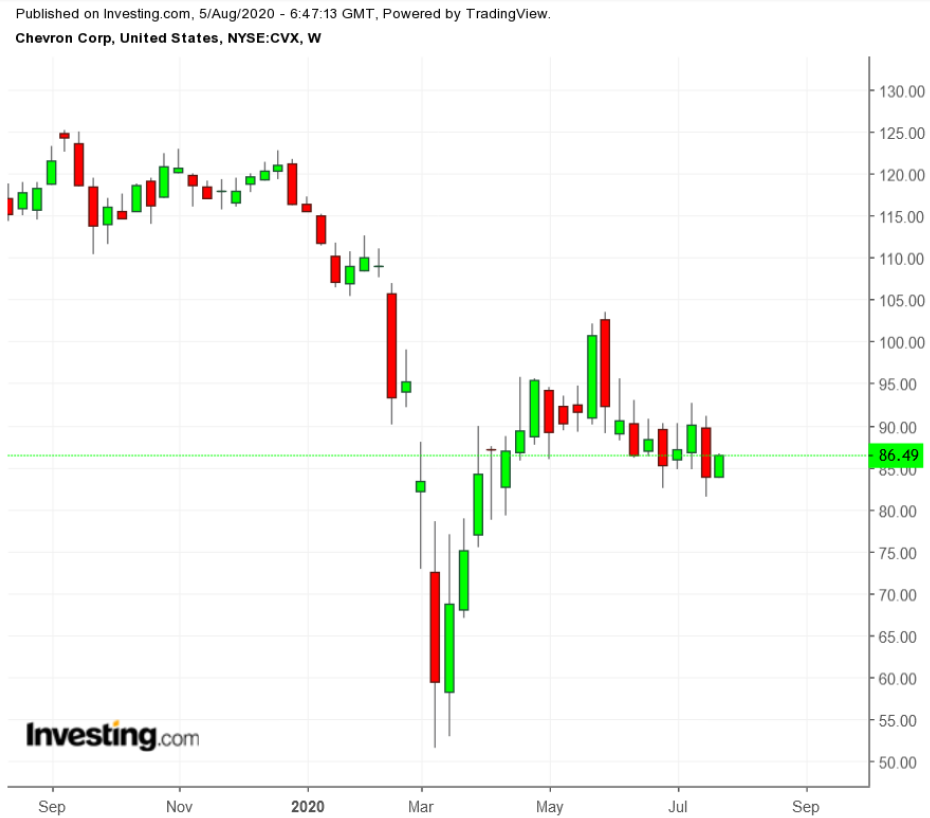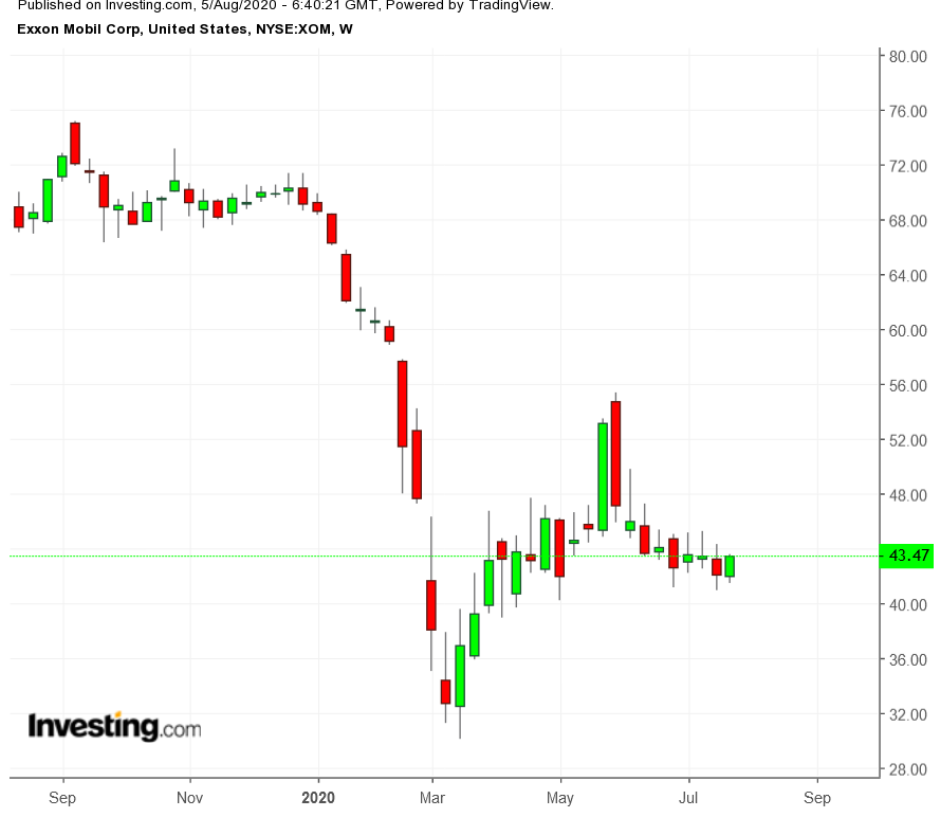During this global health crisis, America’s two largest energy companies—Exxon Mobil (NYSE:XOM) and Chevron (NYSE:CVX)—have so far avoided slashing their coveted dividends. But that could soon change, given the companies’ latest earnings.
Both oil giants surprised investors last Friday when they released their Q2 2020 earnings reports, which exposed the extent of damage each company has endured because of the recent pandemic-triggered collapse in energy demand. In the second quarter, Chevron lost $8.3 billion, its largest loss since about 1998. That showing also stood in sharp contrast to the same period in the previous year, when the company posted a $4.3-billion profit. 
Last quarter's losses deepened as the producer wrote down $5.7 billion in oil-and-gas assets, including $2.6 billion on holdings in Venezuela.
Exxon had a similarly disturbing story to tell. The largest U.S.-based oil and gas producer posted a back-to-back quarterly loss for the first time this century. The Irving, Texas-based energy major reported a deficit of $1.1 billion, compared with a profit of $3.1 billion in the same period a year ago.
Exxon also told investors it will delay its ambitious expansion plan to preserve cash. The company failed to generate positive operating cash flow in the quarter.
Share prices for both companies indicate investors don’t have much hope for a quick reversal of fortune for either company with the pandemic still raging. Also, it’s not clear how long it will take for consumers to resume their normal activities. Exxon shares, which closed at $43.47 on Tuesday, are down more than 35% this year, while Chevron, at $86.49, has lost 30% during the same period.
Swelling Debt, Negative Cash Flows
If this situation lingers, the next big question is: how long can these giants sustain hefty dividend payouts, especially when they’re not generating positive cash flows?
Exxon’s more than 8% yield clearly suggests that investors see a big risk of a cut going forward. The situation is pretty precarious for the US's largest producer which, so far, has shown no intention to cut its dividend.
If the company sticks to its plan to save its current payout rate for the balance of this year, it means they'll have to free up roughly $15 billion, at a time when its balance sheet looks bad and it’s borrowing heavily.
While Exxon failed to generate operating cash flows in Q2, it paid $3.7 billion in dividends, which caused its net debt to swell by $8.8 billion during this period. If Exxon and Chevron resolve to save their payouts, they could face another test if the world sees another dip in demand, or the alliance to control supplies among OPEC+ producers falters.
Indeed, OPEC+ began to pump more oil after production cuts that supported prices around $40 a barrel during the early stages of the pandemic. The group and its partners will release an additional 1.5 million barrels a day in August compared with July, according to a report in Bloomberg.
Besides short-term headwinds that are hurting the oil business, the transition away from fossil fuels continues to threaten the industry's long-term prospects—and it’s not going away. The global trend is to increase reliance on low-carbon fuels, like gas or alternative energy sources. The pandemic has further accelerated that shift.
Due to these pressures and depressed price outlook, Chevron, Royal Dutch Shell (NYSE:RDSa) and BP (NYSE:BP) all wrote down billions of dollars of assets in the past quarter. Perhaps Exxon will do the same soon.
Bottom Line
Oil stocks, in our view, don't make a compelling investment case in the current economic environment. These companies are exposed to negative headwinds, including an oversupply of oil, natural gas and liquefied natural gas. That situation is unlikely to change as long as the pandemic keeps accelerating and sentiment shifts away from fossil fuels.
